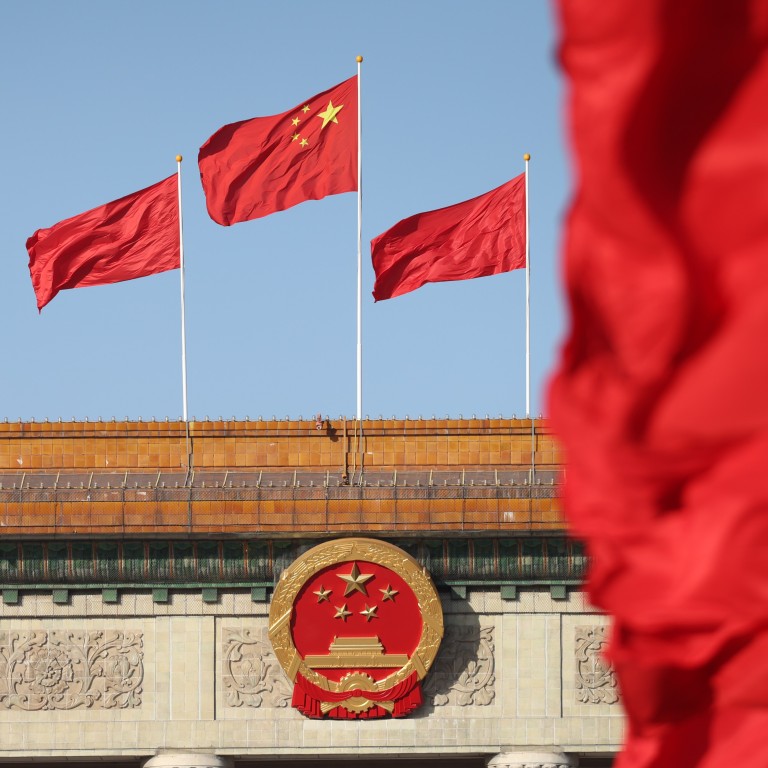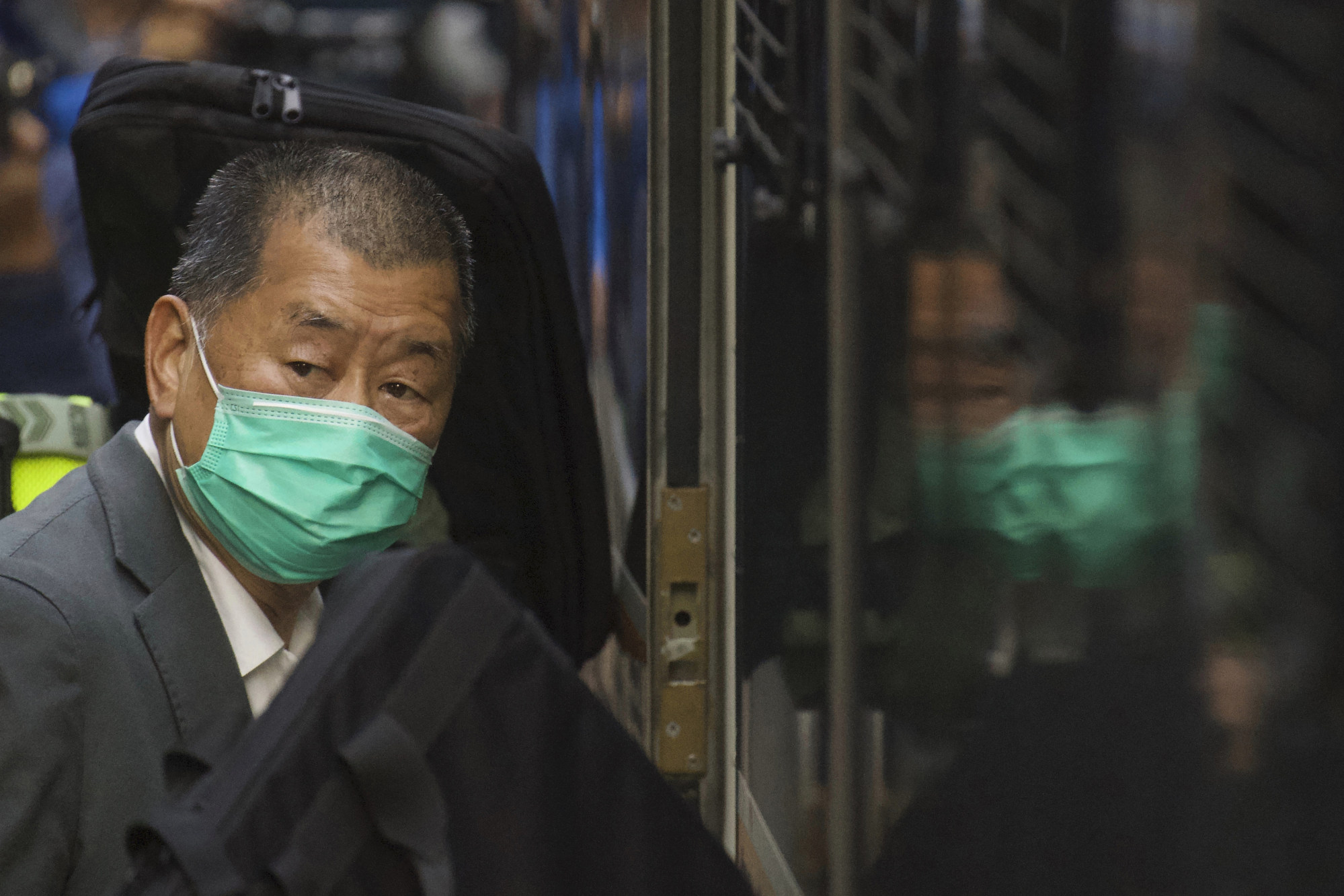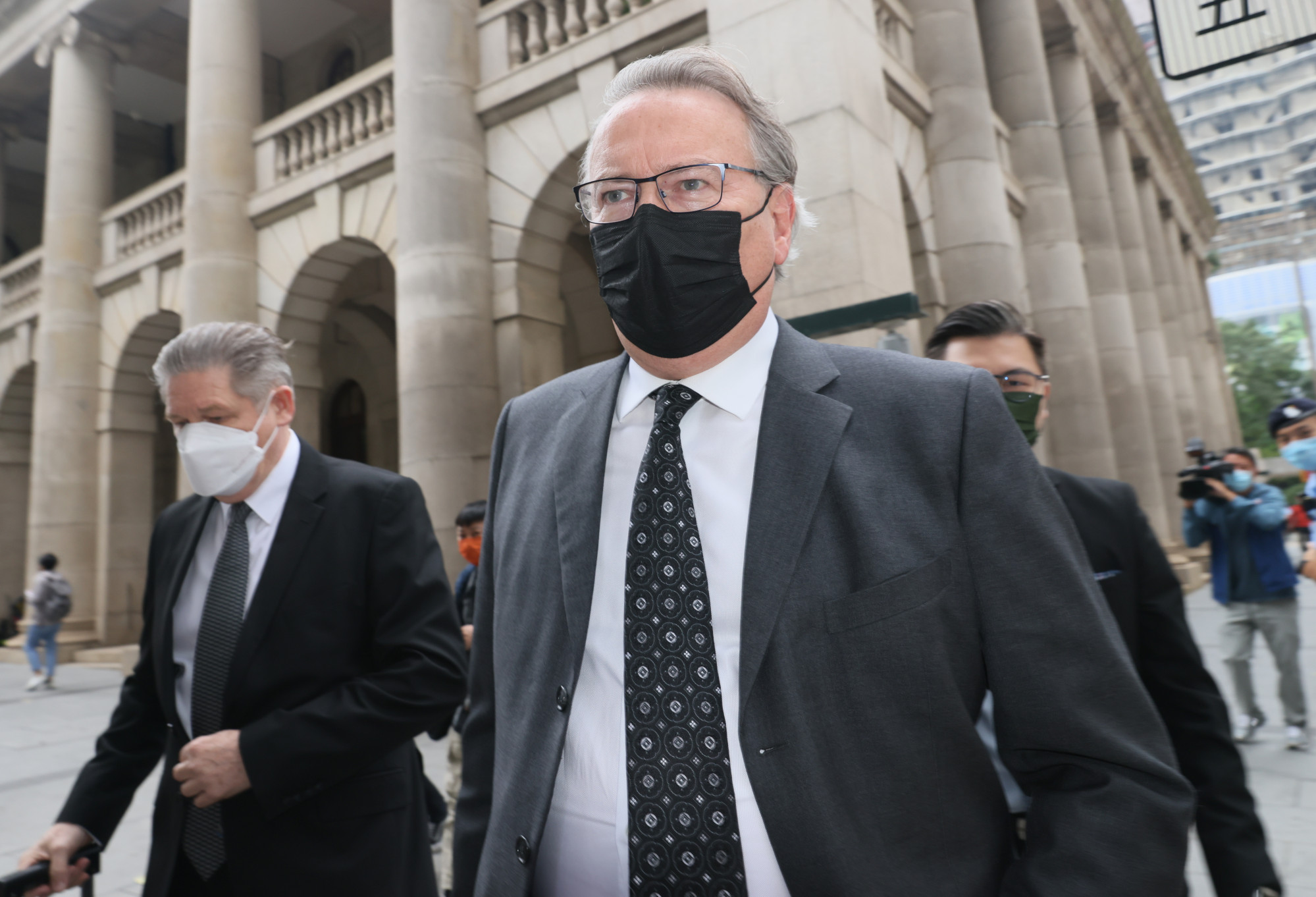
National security law: can Beijing influence court disputes after decision leaving key power in Hong Kong’s hands?
- Top legislative body last Friday ruled question of whether foreign lawyers can represent defendants is up to chief executive or special committee to decide
- Some legal experts say defendants’ rights now in political hands, but pro-Beijing lawmaker stresses other jurisdictions put national security matters above courts
Beijing can still exert its influence in disputes involving national security cases in Hong Kong despite last week’s ruling that left power to decide whether foreign lawyers can represent defendants in the hands of city authorities, legal experts have warned.
Hong Kong authorities were also unlikely to give up ground in the dispute over whether overseas lawyers should be permitted in such trials, they predicted on Tuesday, although one pro-Beijing lawmaker stressed that in other common law jurisdictions, matters concerning national security often fell outside the court’s purview.
Thomas Kellogg, executive director at the Asia Law Centre, said Hong Kong’s track record in granting defendants as many legal rights as possible under the national security law “is far from reassuring”.
“They have yet to grant any national security law defendant a jury trial and have used their power to deny defendants bail in similarly sweeping fashion,” he said. “There’s little to suggest that the Hong Kong government will use this new power in anything resembling a fair and even-handed way.”
What Beijing ruling on overseas lawyers in Hong Kong national security cases means
The country’s top legislative body last Friday issued an interpretation of the national security law at the request of the city government that allowed the city’s leader or a dedicated committee to decide whether lawyers registered overseas could represent defendants or litigants in state security cases.
The interpretation by the National People’s Congress Standing Committee came after media tycoon Jimmy Lai Chee-ying, charged with colluding with foreign forces, was challenged by prosecutors over his intention to have British King’s Counsel Timothy Owen represent him. Lai’s case has since been adjourned to September 25.

The pro-establishment camp welcomed the ruling as a demonstration of Beijing’s confidence in the ability of Hong Kong authorities to handle national security cases, and a decision that had minimal impact on judicial independence.
But Eric Lai Yan-ho, a non-resident fellow at the Centre for Asian Law at Georgetown University in the United States, underscored the ruling’s reference to the Committee for Safeguarding National Security, which allowed Beijing to make “inroads” into the autonomy granted to city authorities.
The standing committee ruled that under Article 47 judges were expected to seek a certificate from Chief Executive John Lee Ka-chiu to determine whether cases involved national security interests. If they had not done so, the Committee for Safeguarding National Security, provided by Article 14, could make a decision.
But Lai said the committee’s deliberations were not transparent and its decisions were “immune to any judicial scrutiny or judicial review”.
Professor Johannes Chan Man-mun, a former law dean at the University of Hong Kong (HKU), expressed similar concerns over the ruling.
“People were expecting the worst, so in this sense the interpretation comes as a relief,” he said, referring to Beijing’s decision not to issue an outright ban on foreign lawyers.
But what would have been decided by the court would now be left up to the chief executive, he said, adding: “If one looks at the composition of the national security committee, there is even less reason to be relieved.”

Hong Kong lawmaker Priscilla Leung Mei-fun, a member of the Basic Law Committee that advises Beijing on matters relating to the city’s mini-constitution, said critics had failed to acknowledge the gravity of what was at stake.
“One of the most important points is that these are cases involving national security,” she said.
In other common law jurisdictions, matters concerning national security would often be outside the court’s purview, she said. She pointed to a British case that arose from then prime minister Margaret Thatcher’s ban on employees from the Government Communications Headquarters, an intelligence and security organisation, from joining trade unions on national security grounds.
In that case, the court found national security was among the types of royal prerogative that lay beyond its remit.
Professor Albert Chen Hung-yee, a constitutional law expert at HKU, said the Department of Justice could ask the court to obtain a certificate in future cases following the latest ruling.
“If the court eventually rules that such a certificate is not needed, the government can ask Beijing for an interpretation to decide whether the issue falls under the scope of Article 47,” he said.
But Chen added he did not expect Article 47 to be invoked often as doing so could have an impact on the city’s reputation for rule of law.
Beijing hands Hong Kong final say on allowing foreign lawyers in security trials
Leung said it was now up to the Hong Kong government to work out the details of the chief executive’s certificate or committee’s decision, and whether they would exist as binding evidence for courts to further weigh or take the form of an order for judges to hand down.
But Ling Bing, a mainland Chinese law specialist at the University of Sydney, was sceptical about how much room Hong Kong courts would have to manoeuvre, citing a statement by a spokesman from the legal commission of the national legislature.
The spokesman said the executive, legislative and judicial branches “shall respect and implement” the decisions of the committee.
“The most significant part of the interpretation is its elaboration of the power of the Committee for Safeguarding National Security,” Ling said.

